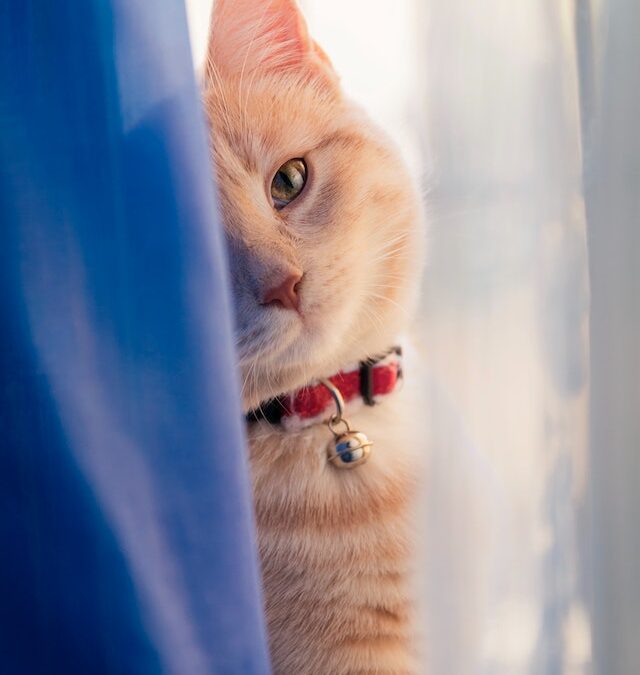If you’re a cat person, you’ll already be familiar with how interesting and affectionate they can be as pets. Some felines are quite spirited and always seem to be getting into something, while others are inclined to be a bit more sedentary.
The one thing all cats have in common is that they engage in undesirable behavior from time to time. It could be that they’re looking for attention, adjusting to a change at home, or they simply don’t know the household rules yet.
It’s important to remember that much like humans, felines experience emotions like anxiety, fear, and frustration, which may be factors contributing to their behavioral issues. The good news is most improper cat conduct isn’t a sign of a medical issue. Here are a few behaviors your pet might engage in and what to do about them.
1. Jumping on the kitchen counter
Cats are very curious creatures. This means that nothing is off-limits for exploration unless you establish clear boundaries to convey what should not be crossed. Still, expect to have to regularly reinforce boundaries, and don’t take it for granted that they abide by your orders when you’re not around.
Felix or Fluffy is compelled to get up on countertops because it gives them a better view of their surroundings. Cats don’t just jump on kitchen surfaces; they’ll look for anything high in the room they can climb onto.
To mitigate this, consider placing a cat tree or another elevated surface at counter height to provide them with an advantageous vantage point. Additionally, positioning an object near a window where they can observe the surroundings often proves effective. Moreover, if you want to satisfy their curiosity about what you’re cooking for dinner, cat climbing equipment can assist them in being close enough to observe the action while maintaining a safe distance from the food preparation area. Regardless, be sure to clean all kitchen surfaces before you begin preparing food.
2. Meowing continuously
Hearing your feline friend constantly meowing can be distressing. Most cats tend to be vocal, so you’ll be accustomed to your pet reminding you it’s time for their feeding or telling you they want your attention for another reason. Perhaps they have missed you during the day and just want to play.
Cats all have unique personalities, and your feline may be more or less vocal than most. In any event, what to look for is behavior that is out of character for them. If the sounds your pet makes have changed and are more like crying or howling or if their vocalizing has become incessant, it’s time to investigate and redirect their behavior.
Unless you believe your kitty is in pain or otherwise distraught, it’s important not to react right away each time they meow. This only encourages them to demand your attention and will train them that this is the way to get what they want immediately. Instead, ignore them for a few minutes before responding.
3. Licking compulsively
Cats will generally keep their coats and claws well cared for. That said, if they groom or lick themselves excessively it can be worrisome. This behavior can escalate significantly, resulting in hairless patches and raw skin.
Such behavior can be attributed to various factors, including anxiety, pain, or stress. Consequently, it is wise to schedule a visit to the animal clinic. Your veterinarian will conduct a thorough examination to rule out any underlying medical issues. If there are no apparent physical health concerns, they may suggest consulting a certified cat behaviorist to address the problem and help create a more secure environment for your pet.
Other types of compulsive actions can involve constantly chewing things such as cardboard, fabrics, string, or wool. Siamese breeds have a predilection for chewing on wool and fabric, hinting at a possible hereditary component.
4. Waking you up
On the scale of bad behavior, this one is probably not as high on the list. Granted, we all need our rest. But, unless your kitty is waking you up frequently through the night, they’re likely just more of a morning creature and want to get the day started sooner.
If your feline is an early riser, they may be impatient for breakfast. One retraining method involves setting an alarm to ring a short time before your pet typically wakes you and feeding them as soon as you get up. Then, set the alarm a few minutes later each day until you’ve reached a reasonable rising hour for yourself. Your feline will learn to expect food when the alarm sounds and not wake you before.
Conclusion
While most of these behaviors don’t normally suggest that anything is amiss health-wise, remember, it’s not a bad idea to check in with the veterinarian if concerns such as constant meowing and licking persist. It’s the best way to put your mind at ease and pick up a few pointers about how to encourage better behavior.

